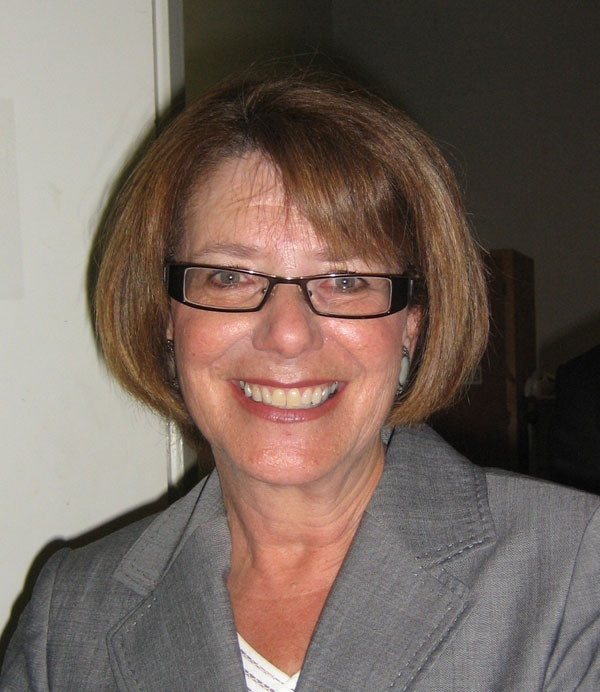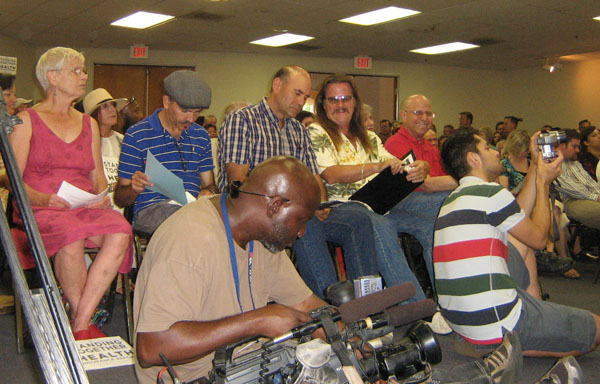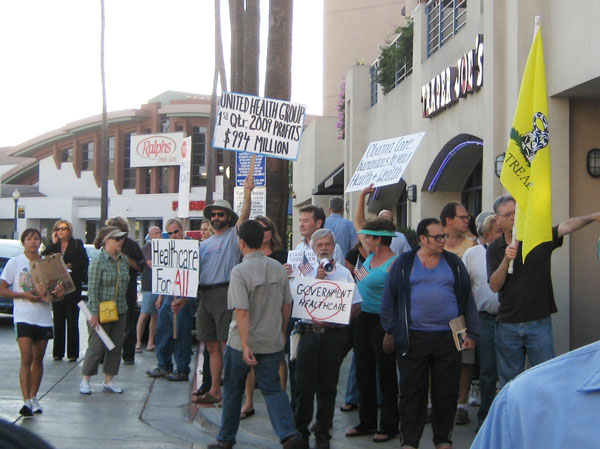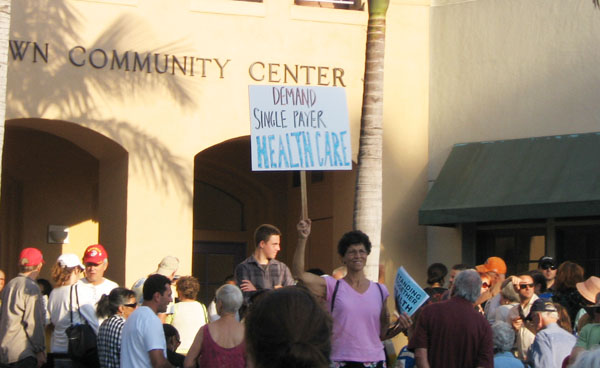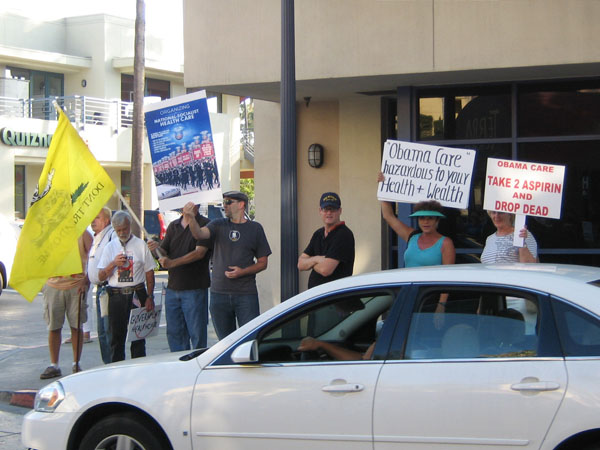| About Us | Contact Us | Calendar | Publish | RSS |
|---|
|
Features • latest news • best of news • syndication • commentary Feature Categories IMC Network:
Original Citieswww.indymedia.org africa: ambazonia canarias estrecho / madiaq kenya nigeria south africa canada: hamilton london, ontario maritimes montreal ontario ottawa quebec thunder bay vancouver victoria windsor winnipeg east asia: burma jakarta japan korea manila qc europe: abruzzo alacant andorra antwerpen armenia athens austria barcelona belarus belgium belgrade bristol brussels bulgaria calabria croatia cyprus emilia-romagna estrecho / madiaq euskal herria galiza germany grenoble hungary ireland istanbul italy la plana liege liguria lille linksunten lombardia london madrid malta marseille nantes napoli netherlands nice northern england norway oost-vlaanderen paris/Île-de-france patras piemonte poland portugal roma romania russia saint-petersburg scotland sverige switzerland thessaloniki torun toscana toulouse ukraine united kingdom valencia latin america: argentina bolivia chiapas chile chile sur cmi brasil colombia ecuador mexico peru puerto rico qollasuyu rosario santiago tijuana uruguay valparaiso venezuela venezuela oceania: adelaide aotearoa brisbane burma darwin jakarta manila melbourne perth qc sydney south asia: india mumbai united states: arizona arkansas asheville atlanta austin baltimore big muddy binghamton boston buffalo charlottesville chicago cleveland colorado columbus dc hawaii houston hudson mohawk kansas city la madison maine miami michigan milwaukee minneapolis/st. paul new hampshire new jersey new mexico new orleans north carolina north texas nyc oklahoma philadelphia pittsburgh portland richmond rochester rogue valley saint louis san diego san francisco san francisco bay area santa barbara santa cruz, ca sarasota seattle tampa bay tennessee urbana-champaign vermont western mass worcester west asia: armenia beirut israel palestine process: fbi/legal updates mailing lists process & imc docs tech volunteer projects: print radio satellite tv video regions: oceania united states topics: biotechSurviving Citieswww.indymedia.org africa: canada: quebec east asia: japan europe: athens barcelona belgium bristol brussels cyprus germany grenoble ireland istanbul lille linksunten nantes netherlands norway portugal united kingdom latin america: argentina cmi brasil rosario oceania: aotearoa united states: austin big muddy binghamton boston chicago columbus la michigan nyc portland rochester saint louis san diego san francisco bay area santa cruz, ca tennessee urbana-champaign worcester west asia: palestine process: fbi/legal updates process & imc docs projects: radio satellite tv |
printable version
- js reader version
- view hidden posts
- tags and related articles
Congressmember Davis Speaks at Orderly Town-Hall Meetingby Mark Gabrish Conlan/Zenger's Newsmagazine Sunday, Aug. 16, 2009 at 5:56 PMmgconlan@earthlink.net (619) 688-1886 P. O. Box 50134, San Diego, CA 92165 Elsewhere in the country Democratic Congressmembers are being heckled and sometimes driven off the stage when they try to hold town-hall meetings to explain the health-care reform bill the House is currently debating. Not in San Diego August 11, where Congressmember Susan Davis was able to hold a meeting in peace and discuss the issue in a polite, civil manner. This was largely due to the strategy of the sponsoring organization, the Hillcrest Town Council, which admitted their own members and Hillcrest residents first -- thereby assuring Davis a mostly liberal audience that wouldn't try to disrupt her meeting.
Congressmember Davis Speaks at Orderly Town-Hall Meeting
Disruptions At Other Health-Care Meetings Nationwide Don’t Happen Here by MARK GABRISH CONLAN Copyright © 2009 by Mark Gabrish Conlan for Zenger’s Newsmagazine •All rights reserved The story of Congressmember Susan Davis’s town-hall meeting on health care at the Joyce Beers Community Center in Hillcrest August 11 is the story of the dog that didn’t bark in the nighttime. Elsewhere in the country such meetings have been disrupted by aggressive opponents of the health-care reform proposals now being debated in Congress, sometimes shouting down the Congressmembers before they even had a chance to speak. These people and their tactics have been hailed by the Republican party and the Right-wing media as grass-roots citizen activists, and denounced by Democrats as thugs following a carefully prepared script. But the August 11 meeting in San Diego ran peacefully, quietly, with no disruptions, and even the people critical of the House health-reform bill HR 3200 framed their disagreements politely and in the form of questions. That the San Diego health-care meeting was so peaceful, and that Congressmember Davis got a chance to give an overview of HR 3200’s provisions and challenge a lot of the Right’s more bizarre statements about it without being shouted down, can be attributed largely to the actions of the sponsoring organization, the Hillcrest Town Council. Its officials kept tight control over who would be allowed into the meeting at all. They called first on the 30 or so Town Council members, then seated residents of Hillcrest before letting in anyone else — thereby assuring Davis a liberal-leaning audience. Only after Town Council members and other Hillcrest residents were seated were other members of the public allowed in. Most of the opponents of health-care reform were left outside, sparring with progressives equally critical of the current health bills but for opposite reasons: because they leave the private health insurance industry in place and don’t move decisively towards a single-payer system in which a government agency would replace private insurers as the bulwark of health coverage. Freed from having to deal with the kind of unremitting hostility from loud, assertive activists that has shut down meetings on this subject in other cities, Congressmember Davis was able to speak for several minutes about the details of HR 3200 and what it would and wouldn’t do. “There’s a lot of information out there on the Internet, but some of it is not true,” she explained. “If you receive your health care through the Veterans’ Administration or Tricare [a health insurance program for active-duty and retired military and their families], your care will not change. Some provisions try to make Medicare more solvent, but we’re trying to continue the program’s high quality and close the ‘doughnut hole’” — a gap in prescription drug coverage left over from the Bush administration’s bill to add drugs to the Medicare program. Taking on two issues that the Right has successfully used to reduce public support for the bill, Davis said that under the current draft of HR 3200 no tax money will go to provide health care to undocumented immigrants, and no tax money would go to fund abortions. She didn’t directly address the propaganda that the bill would encourage euthanasia by denying health care to senior citizens — which was based on Section 1233, a provision in the legislation that would require insurance companies to pay for a consultation with a health-care provider on “advanced care planning,” which could include drawing up a living will, Though stressing that the final bill is not perfect — and will likely change quite a bit before the full House votes on it — Davis clearly was more interested in describing the positive aspects than dwelling on the criticisms. Davis said that one aspect of the bill would limit the ability of health insurance companies to raise premiums continually — something she said has hit her own family hard. “My son and his wife pay $1,200 for coverage for a family of four,” she explained. “In just four years, those premiums have gone up from $65 to $1,200, and if reforms aren’t passed, premiums will double in 10 years.” Another provision she strongly supported was one that would prevent insurers from denying coverage to people with so-called “pre-existing conditions” — which in some cases has gone so far as to deny people treatment for cancer because decades before they had a yeast infection or acne. “Today, 12.6 million Americans are discriminated against in health coverage because of pre-existing conditions,” Davis said. “Under the current system, we are all one illness away from not being able to obtain coverage on the private market. Under the health care proposal, people would never lose access to coverage. … I don’t know how many of you worry about losing your coverage through illness or an adverse event. [Under HR 3200] health care plans would no longer be able to deny you coverage if you’re ill, or set a total limit on the amount they will pay under your policy.” Davis also described the proposal in the bill for so-called “health exchanges” as a provision that “increases competition through incentives for private insurers.” The idea of the exchange , Davis said, is to offer people in the market for individual health policies a way to “shop and pick and choose from a number of private and public plans. If you had to buy private coverage today, would you know how to shop or where to buy? The goal of the health insurance exchange is to allow people to compare prices, choices and co-pays. The new coverage will drive down costs. The government will not select plans for you. If you currently have insurance through an employer, you would keep it.” Closing her prepared remarks, Davis praised the robust debate on the issue and outlined her vision of the American people’s priorities. “We all want Americans to have affordable health insurance, and to be able to change a job or start a small business without losing coverage. We all want the best health care in the world. We all want health care decisions to be between doctors and patients — and sometimes today it’s the private sector that gets in the way of that.” The first question Davis got from the audience was from Deborah Figuera, a woman with disabilities concerned about the cutbacks in Medicare and Medi-Cal services — which, Davis explained, were coming mostly from the California state government, not from the feds. Davis said that under HR 3200, Medicare and Medicaid (the national program of which Medi-Cal is a part) would remain pretty much the same, though “a lot of the bill is about changes in that area to make them more effective.” Davis said that for lower-income people seeking health coverage, “there could be subsidies” to buy private plans, “or the public option could be important to you.” Another woman in the audience said, “I have lived under all the systems, including Canada’s” — whose “single-payer” system, in which a government agency replaces the private insurers and pays people’s medical bills out of money raised by taxes, is hailed by many progressives as the model the U.S. would adopt and denounced by conservatives as leading to shortages and rationing. Right now, she said, “I’m on Medicare, and that’s even better than Canada.” Her question was whether the health reform would pay doctors on a fee-for-service basis or whether there would be “capitation” — in which doctors are paid so much per patient regardless of how much care they provide. She made it clear that fee-for-service was her preference because it “gives us, the consumers, the control to change the system and make it right.” “Fee for service in Medicare will not change,” Davis said, “but sometimes there may be ‘bundling’” — which appeared to mean different doctors, hospitals and clinics comparing notes and coordinating their treatments for the same patient — “to create a way that that care will help patients feel better. More tests is not necessarily better care.” The same audience member pointed to the 20 to 30 percent overhead, including profit margins, of the private insurers versus the 3 percent overhead of Medicare — and Davis used that to point out that the bill before the House would cap the health insurance industry’s so-called “medical loss ratio” at 85 percent. The “medical loss ratio” is the total percentage of premium income a health insurance company spends on actually paying for patient care — and, as former Cigna public relations director Wendell Potter explained on the July 10 TV show Bill Moyers’ Journal, investors in health insurance companies want that number as low as possible. According to Potter, in the early 1990’s the average medical loss ratio for the health insurance industry was 95 percent — and now it’s 80 percent. Davis said that there’s a clause in the bill that any company participating in the health exchanges would have to keep its medical loss ratio from going below 85 percent. The next question was about the $1.4 trillion cost estimate the nonpartisan Congressional Budget Office (CBO) slapped on the health-care proposal. Davis said that that fearsome number didn’t include cost savings from a provision in the bill that would prevent health care providers from charging co-payments for preventive care. She also said that the bill should cut costs by reducing the pressure on physicians and hospitals to practice “defensive medicine” and by giving doctors “better ways of sharing information” so they’d know more about which treatments worked and which didn’t. The bill “probably doesn’t do enough for the cost curve,” Davis conceded, though she said the CBO re-scored the bill and “came back with a figure of $68 billion” instead of the widely reported $1.4 trillion. One man in the audience said in regard to the controversy over the health bill’s cost, “I never hear anyone ask the cost of sending 48,000 more soldiers to Afghanistan. I want to know the morality of how we can spend so much to kill people, and pinch pennies to heal people.” The same individual then made it clear the bill didn’t go far enough for him in that it left private, for-profit insurance companies in charge of most health coverage when they are the ones most often coming between doctors and patients and having bureaucrats without medical expertise making treatment decisions for patients. “I wonder if there’s any way to push further and get insurance companies out of health care altogether,” he asked. “People want change they have a comfort level with,” Davis replied. “It’s important for us that where we have a system a lot of us like, we should build on that. If we set limits that you can’t exclude people or raise premiums, that would be good. If we can put the pieces together, we can do a better job. … We’re all trying to work together to have the best return for Americans, to cut costs and provide quality of care. Our responsibility is to get things better.” In response to a woman who asked the bottom-line question to end all bottom-line questions — “What’s my premium going to be?” — Davis said she didn’t know, but “the idea is you won’t see them double in 10 years. As we try to change the cost curves, your premiums won’t see the kind of escalation there’s been recently. There’s language in the bill that says co-payments for preventive care will not be utilized.” Asked by another audience member why can’t ordinary Americans have the same health benefits as members of Congress, Davis said that was basically the proposal before the House. She added rather testily that the congressional benefits aren’t nearly as impressive as many people think: “I have to pay extra for dental and vision.” At several points during the meeting, Davis made it clear that she supports a “public option” provision in the bill as an alternative to private insurance companies. She raised it to the person who asked why Congress couldn’t extend its own health benefits to the rest of us. She said it could be an option for Deborah Figuera regarding her concern that private insurance wouldn’t cover her needs as a person with disabilities. When asked by one audience member whether her hearing aids will be covered under the health care reform — she now has to pay for them out of her own pocket — Davis said, “I can’t say what the public option will cover,” but hinted that she might have an easier time getting hearing aids paid for that way than through a private plan. One legitimate criticism of the plan came from the wife of a San Diego firefighter who pointed to the provision in the House bill that requires that employers pay at least 8 percent of their total payroll cost to providing health care for their employees, either through buying coverage themselves or paying into a fund that would cover the otherwise uninsured. Her fear was that what’s being presented as a floor would become a ceiling; that employers who now spend more than that, especially public ones like the city of San Diego that are in budget trouble and looking for places to cut, will reduce their spending on employee health care to 8 percent. “That is not how it would work,” Davis said. “The 8 percent figure is to incentivize private businesses to provide more coverage. There would be some constraints, including the timing and the number of employees. The idea is to make this a level playing field as much as possible.” By keeping close control over the attendance at the meeting, the Hillcrest Town Council managed to ensure Davis a mostly sympathetic audience. The real debate took place outside the meeting, as crowds disenchanted with the health care proposals before Congress from both ends — progressives who want to see a single-payer system replace the health insurance industry as well as conservatives who want to see less, not more, government involvement and funding of health care — squared off. Though no violent incidents were reported, a number of impassioned conversations took place, often pitting supporters of single-payer against people opposed to any role for government at all. Some of the Right-wingers there said they were against employer-based health insurance — they felt people ought to buy individual policies or just pay for medical care as they need it — and were also against public education and virtually any government program that provides for the common good at the expense of individual taxpayers. TV news reporters who covered the meeting spent as much time outside the hall as inside, interviewing Right-wing opponents of health reform but not any of the single-payer advocates. After the meeting, the TV reporters asked departing attendees if there had been any openly confrontational questions from reform opponents, and seemed disappointed to hear there had been none. Congressmember Davis did field one question that wasn’t about health care at all. Ted Bunce, activist with the San Diego Democratic Club, asked her what she planned to do about getting rid of the military’s “don’t ask, don’t tell” policy banning Queer servicemembers from serving openly. “I’m very supportive of having it repealed,” she said. “Every one who wants to serve our country in the military should be able to. I forced a hearing on ‘don’t ask, don’t tell’ for the first time in 15 years. We work closely with our officers behind the scenes. We want the military to talk about ho they will implement it, and we know once we bring this issue forward, our commanders will stand up and salute.”
Report this post as:
Audience in hallby Mark Gabrish Conlan/Zenger's Newsmagazine Sunday, Aug. 16, 2009 at 5:56 PMmgconlan@earthlink.net (619) 688-1886 P. O. Box 50134, San Diego, CA 92165
error
Report this post as:
Mixed messagesby Mark Gabrish Conlan/Zenger's Newsmagazine Sunday, Aug. 16, 2009 at 5:56 PMmgconlan@earthlink.net (619) 688-1886 P. O. Box 50134, San Diego, CA 92165
error
Report this post as:
No governmentby Mark Gabrish Conlan/Zenger's Newsmagazine Sunday, Aug. 16, 2009 at 5:56 PMmgconlan@earthlink.net (619) 688-1886 P. O. Box 50134, San Diego, CA 92165
error
Report this post as:
Public optionby Mark Gabrish Conlan/Zenger's Newsmagazine Sunday, Aug. 16, 2009 at 5:56 PMmgconlan@earthlink.net (619) 688-1886 P. O. Box 50134, San Diego, CA 92165
error
Report this post as:
Single-payerby Mark Gabrish Conlan/Zenger's Newsmagazine Sunday, Aug. 16, 2009 at 5:56 PMmgconlan@earthlink.net (619) 688-1886 P. O. Box 50134, San Diego, CA 92165
error
Report this post as:
Obama Born in Canadaby Mark Gabrish Conlan/Zenger's Newsmagazine Sunday, Aug. 16, 2009 at 5:56 PMmgconlan@earthlink.net (619) 688-1886 P. O. Box 50134, San Diego, CA 92165
error
Report this post as:
Obamacareby Mark Gabrish Conlan/Zenger's Newsmagazine Sunday, Aug. 16, 2009 at 5:56 PMmgconlan@earthlink.net (619) 688-1886 P. O. Box 50134, San Diego, CA 92165
error
Report this post as:
|



